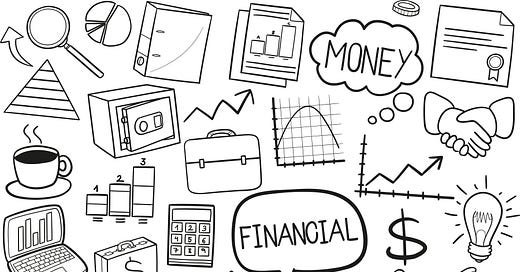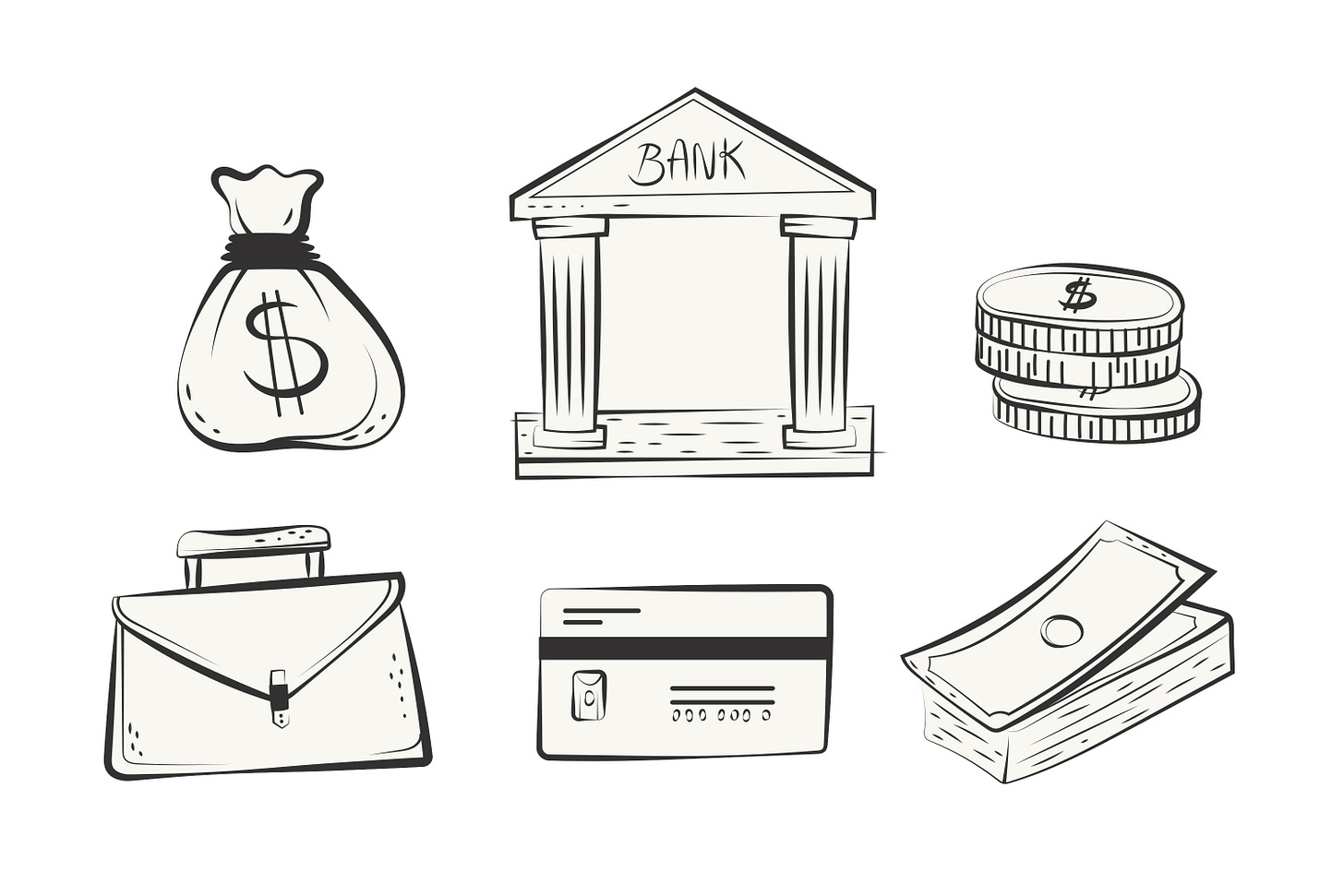Part 1. How Do You Achieve Financial Freedom Without Putting In Extensive Effort?
Every one of us needs financial freedom to live happily and fearlessly.
In today's uncertain times, your assets and liabilities must be clean and transparent to free yourself from financial constraints.
But before you understand your finances and try to make it work for you, it is best to know financial instruments to solve the economic jigsaw puzzle.
Before I explain financial instruments and how they work for you, here is my checklist.
Banking
Savings
Investing
Accounting
Financing
We know all these instruments, but understanding them before making financial decisions leads to better long-term or short-term economic choices.
Today's post concentrates on the types of bank accounts you can open and operate for various uses.
Next week, you will receive a post on savings types and how to get the best out of your savings habits.
This series comprises five parts on the basics of financial planning and what you should consider to put yourself on sound financial footing.
Banking
Imagine carrying money in a bag — like in old times and keeping it at home.
How much can you save?
Or
What is the use of idle money?
“Banks are to the economy what the heart is to the human body. They cycle necessary capital through the whole, and they are barely noticed until pressure, necessity, or crises.”
-Hendrith Smith
To keep your money safe and utilize it for multipurpose, you need a bank account suitable for your requirements.
A Bank account is a primary and essential requirement for us.
You can select the different types of bank accounts depending on your needs.
Four types of accounts are commonly used for most of our requirements.
Those are:
Checking Accounts
Savings Account
Money Market Accounts(MMAs)
Certificate Of Deposit Accounts(CDs)
Checking Accounts
A checking account is usually offered with a debit card and paper checks for daily transactions like paying bills, shopping, transferring funds, or withdrawing money.
You can open a checking account at any local bank, credit union, or online.
Each bank offers varied services and minimum or no monthly balance requirements.
There are a few factors to consider before deciding to select the bank to open a checking account.
The initial or minimum amount of deposit
Minimum or average balance requirements
Monthly charges for maintenance
ATM, overdraft, or misc. fees
Rewards or benefits
Number of ATMs
You can choose the most suitable bank to open a checking account so that you don't have to consider switching banks so often.
However, selecting a perfect checking account also depends on several other factors.
If you are a frequent international flyer and your business involves overseas transactions, you must consider an international bank.
Not just demography but the size of your business or job also plays a role in consideration.
Savings Account
Unlike checking accounts, savings accounts don't come with debit cards or paper checks.
As the name suggests, a savings account's primary purpose is to save your money.
First, distinguish your savings goal and time horizon before choosing a perfect account.
A savings account is suitable for holding your money for the short or long term, depending on your requirements.
Savings accounts pay interest on your deposit. However, the interest rate varies and depends on the bank you choose.
Your interest gain is calculated on interest and annual percentage yield(APY).
Most banks offer up to six ATM withdrawals monthly, exceeding charges levied on succeeding transactions.
Savings accounts have minimum balances and initial deposit requirements, like Checking accounts, which vary from bank to bank.
How about opening a perfect savings account for you?
Decide to open a savings account if you wish to hold money for the short and long term, not for immediate use.
Check with the bank and decide which offers the best interest rates.
Online banks may offer fewer charges compared to traditional banks. However, services may differ.
Calculate your gain on the total deposit and subtract the charges — compare with different banks and choose the perfect savings account for you.
Money Market Accounts(MMAs)
Money Market Account features both savings and checking accounts. Money Market Account facilities allow you to draw a cheque, earn interest on your deposits and pay your bill through a debit card.
However, a Money Market Account works as a savings account, so you can withdraw six times a month depending on the features of the bank, and charges apply after the free withdrawal limit.
Compared to a nil or negligible initial deposit to open a savings account in most banks, the initial opening deposit requirement may be higher to around $1000 and the requirement to keep a minimum monthly balance.
Opening a Money Market Account(MMA) is convenient if you want to set aside money for future down payments or keep money for higher-amount purchases.
It's wise to use a checking account for bill payments and other small purchases and keep a money market account untouched for higher purchases.
Points to consider:
Open a money market account to consider earning higher APY(Annual Percentage yield.)
The money market account is suitable if you want to keep a more elevated amount other than your monthly or weekly expenses.
MMA account comes with a debit card and cheques but requires a minimum monthly average balance depending on the variant and varies from bank to bank.
MMA account is tied to interest rates to make it convenient to earn higher APY, so consider keeping the amount for a longer duration till you need to spend on buying a house or luxury purchases.
“It is well enough that people of the nation do not understand our banking and monetary system, for if they did, I believe there would be a revolution before tomorrow morning.”
-Henry Ford
Certificates of Deposits(CD)
The certificate of deposit (CD) account is where you keep money for a stipulated duration with a fixed interest rate on maturity.
The CD account differs from a traditional account as withdrawal is allowed on maturity, and withdrawal before maturity can attract a penalty depending on the bank's early withdrawal policy.
The certificate of deposit accounts earns higher APY compared with other bank account types. Still, checking prevailing interest rates for that particular duration is better before opening a certificate of deposit account.
Some other financial instruments may yield better returns than certificates of deposits, but consider current bank interest rates before making any final decision.
Comparison of similar products with certificate of deposits:
Stocks
Mutual Funds
Crypto Currency
NFTs
However, few investment instruments are risky. If you have in-depth knowledge of these instruments, you can invest; stick to traditional saving instruments otherwise.
This part 1 is the first post by The Financial Weekly newsletter.
The Financial Weekly Newsletter will come back with part 2 next Saturday.






